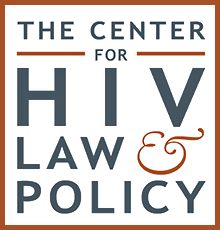Overview
Although Utah does not have any provisions explicitly criminalising HIV ‘exposure’, non-disclosure, or transmission, the law does contain a number of provisions that subject people living with HIV to enhanced penalties for certain offences.
People living with HIV who commit sex work offences are liable to significantly higher penalties. The offences of ‘prostitution’, ‘patronising a prostitute’, and ‘sexual solicitation’ are ordinarily class B misdemeanour offences with a penalty of up to six months’ imprisonment and a fine for first offences, but if committed by someone knowingly living with HIV with a prior conviction for these offences, the penalty is increased to third-degree felony level, which carries a sentence of up to five years’ imprisonment and a fine. The conduct criminalised by these sex work offences includes acts which carry no risk of transmission, such as masturbation and sexual touching, and there is even no need for sexual activity to take place, as the offences are satisfied merely with offers, agreement, arrangement, payment, and loitering. There are no defences for disclosure, condom use, or adherence to antiretroviral treatment, and intent to transmit is also not required. The law also requires anyone who pleads guilty to one of the sex work offences to submit to an HIV test, the results of which can be used to prove HIV status for the purposes of imposing the enhanced penalty.
We are aware of one case under this provision, in which a woman living with HIV was convicted in 2010 for sex work offences for a seventh time, this time receiving an enhanced penalty on account of her HIV status.
There is also a provision which criminalises HIV ‘exposure’ in the context of detention. Imprisoned people who throw substances or objects at officers are liable to prosecution for a class A misdemeanour; however if the substance or object is an ‘infectious agent’ or the saliva of someone knowingly living with HIV or hepatitis, and it comes into contact with the officer’s face or open body wound, it is a third-degree felony. This increases the penalty to from one year imprisonment to up to five years. Intent to transmit and transmission are not required.
In 2017, a proposed reform to the law intended to make HIV non-disclosure an explicit offence for the first time, by expanding the definition of non-consensual sexual activity to include circumstances where the person living with HIV did not disclose their status. This proposal was eventually dropped, and the same bill instead added a provision which introduced enhanced penalties for sexual offences if committed by someone living with HIV or hepatitis. This law raises the penalty for these offences by one classification if committed by a person living with HIV or hepatitis.
The Health Code also contains provisions relevant to people living with HIV. There is a provision which makes it an offence to wilfully ‘introduce’ any communicable or infectious disease to an area. This is a class A misdemeanour, and although the scope of the law is unclear, it does not appear to require intent or transmission. Other parts of this code enable authorities to compel people living with communicable diseases to submit to examinations, treatment, isolation, and quarantine.
For a detailed analysis of HIV criminalisation in Utah, as well as all other US states, see the Center for HIV Law and Policy report, HIV Criminalisation in the United States: a Sourcebook on State and Federal HIV Criminal Law and Practice.
Laws
Utah Code § 76-10-1309
Enhanced penalties–HIV positive offender
A person who is convicted of prostitution under Section 76-10-1302, patronizing a prostitute under Section 76-10-1303, or sexual solicitation under Section 76-10-1313 is guilty of a third degree felony if at the time of the offense the person is an HIV positive individual, and the person:
(1) has actual knowledge of the fact; or
(2) has previously been convicted under Section 76-10-1302, 76-10-1303, or 76-10-1313.
Utah Code § 102.6
Propelling object or substance at a correctional or peace officer — Penalties
(1) It is unlawful for a prisoner or individual detained pursuant to Section 77-7-15 to throw or otherwise propel any object or substance at a peace officer, a correctional officer, or an employee or volunteer, including a health care provider.
(2) Except as provided in Subsection (3), a violation of Subsection (1) is a class A misdemeanor.
(3) A violation of Subsection (1) is a third degree felony if:
(a) the object or substance causes substantial bodily injury to the peace officer, the correctional officer, or the employee or volunteer, including a health care provider; or
(b)
(i) the object or substance is:
(A) blood, urine, or fecal material;
(B) an infectious agent as defined in Section 26-6-2 or a material that carries an infectious agent;
(C) vomit or a material that carries vomit; or
(D) the prisoner’s or detained individual’s saliva, and the prisoner or detained individual knows he or she is infected with HIV, hepatitis B, or hepatitis C; and
(ii) the object or substance comes into contact with any portion of the officer’s or health care provider’s face, including the eyes or mouth, or comes into contact with any open wound on the officer’s or health care provider’s body.
(4) If an offense committed under this section amounts to an offense subject to a greater penalty under another provision of state law than under this section, this section does not prohibit prosecution and sentencing for the more serious offense.
Utah Code § 26-6-5
Willful introduction of communicable disease a misdemeanor
Any person who willfully or knowingly introduces any communicable or infectious disease into any county, municipality, or community is guilty of a class A misdemeanor, except as provided in Section 76-10-1309.


